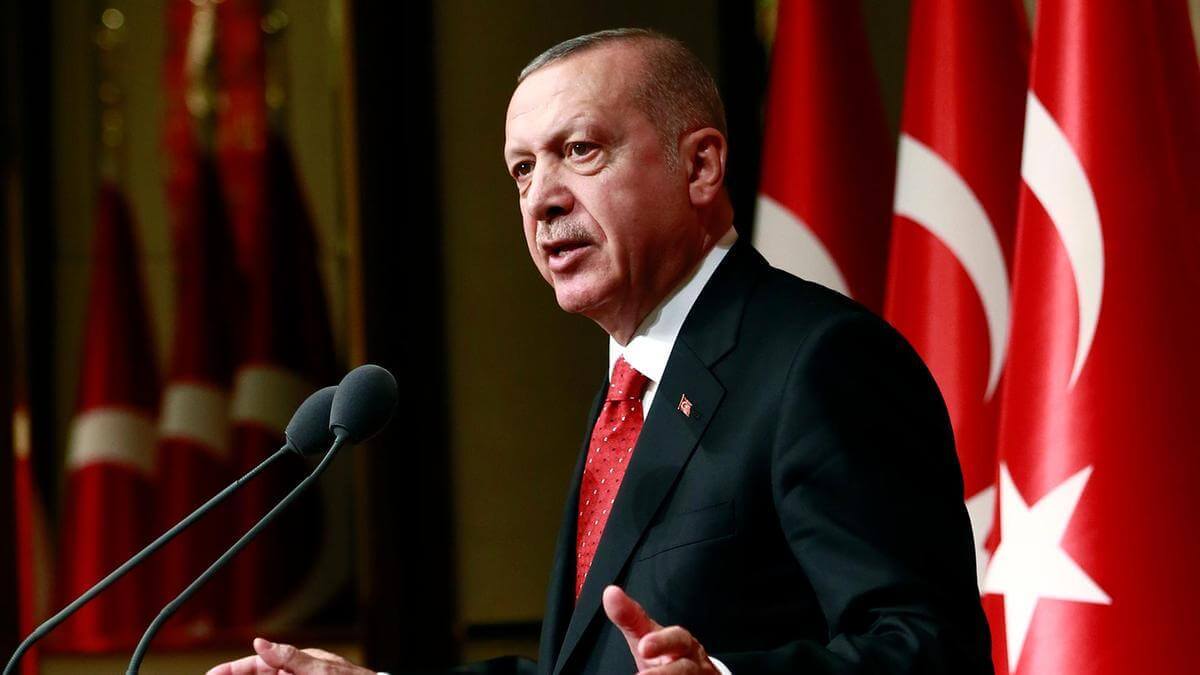After Turkey’s President Recep Tayyip Erdoğan confirmed the testing of its controversial Russian-made S-400 air defense systems, US officials have ramped up warnings of potential sanctions against the country.
Turkey first signed the S-400 deal with Russia in September 2017 and acquired its first four missile batteries, worth about $2.5 billion in July last year. Though Turkey has stressed that the defense system is “vital” to the country’s security, the US has opposed Ankara’s purchase on the grounds that they compromise shared NATO defence systems. Washington is also concerned about the Kremlin gaining access to American military secrets if the Russian-made systems are integrated into Turkey’s military. When the US’s disapproval did not stop Ankara from acquiring the weapons, it suspended Turkey from its F-35 jet program in 2019.
Though Washington could have imposed sanctions on Turkey last year under the Countering America’s Adversaries Through Sanctions Act (CAATSA), which mandates financial penalties for countries that do business with Russia’s military, the Trump administration hesitated to do so over the president’s desire to mend relations with Russia. Trump had even also gone on record and justified Turkey’s deal with Russia by saying that, “President Erdogan had to buy the S-400 because the Obama administration did not sell Patriots to Turkey.” He further added that “this was an injustice done to a NATO ally.”
Despite issuing a warning against the system’s testing, R. Clarke Cooper, the US State Department Bureau of Political-Military Affairs Assistant Secretary, stated that he hopes that Turkey would “walk back from operationalising” the system. After a recent visit to Greece and Bulgaria, he encouraged both the countries and the other NATO allies to maintain a cordial relationship with Turkey, as it would ensure “greater security of Europe ”. He also expressed his concerns about Moscow’s “disruptive actions” that could leave them apart.
The cleavage between the West and Erdogan is expected to have severe repercussions on Turkey’s economy. Turkey’s currency has already suffered due to the coronavirus crisis, and the Lira slid to its lowest value against the dollar this year. Further sanctions imposed by the US can put Turkey’s banking system at risk and cause “financial collateral damage”. Amid mounting pressure from the Pentagon and Congress, President Trump has also back-pedaled on his support for his Turkish counterpart and issued a warning last year to “destroy and obliterate the Economy of Turkey…as it has been done before.”
As I have stated strongly before, and just to reiterate, if Turkey does anything that I, in my great and unmatched wisdom, consider to be off limits, I will totally destroy and obliterate the Economy of Turkey (I’ve done before!). They must, with Europe and others, watch over...
— Donald J. Trump (@realDonaldTrump) October 7, 2019
Turkey’s response to the threats, however, has remained defiant. Erdogan told the reporters that the US’ warnings “absolutely does not concern us.” In support, Russian media outlets said that a future war against Greece and Turkey that might erupt due to the tensions in the Eastern Mediterranean will put Russia’s S-400 to the test with Cypriot’s S-300.
#Russian Media #PolitRussia: ''Α war between #Greece and #Turkey will test #S300 against #S400''
— Andreas Mountzouroulias 🇬🇷 (@andreasmoun) November 2, 2020
''#Turkish ships will face strong resistance from #Greece'' #Greece #Turkey pic.twitter.com/Mfa6fi3TV6
Given the impending results of the US election, Erdogan may have a lot to lose if Democratic candidate Joe Biden gets elected. The former Vice President has gone on record to show his support for the Turkish opposition against the current government and has openly condemned Erdogan’s actions in purchasing the Russian weapons.

